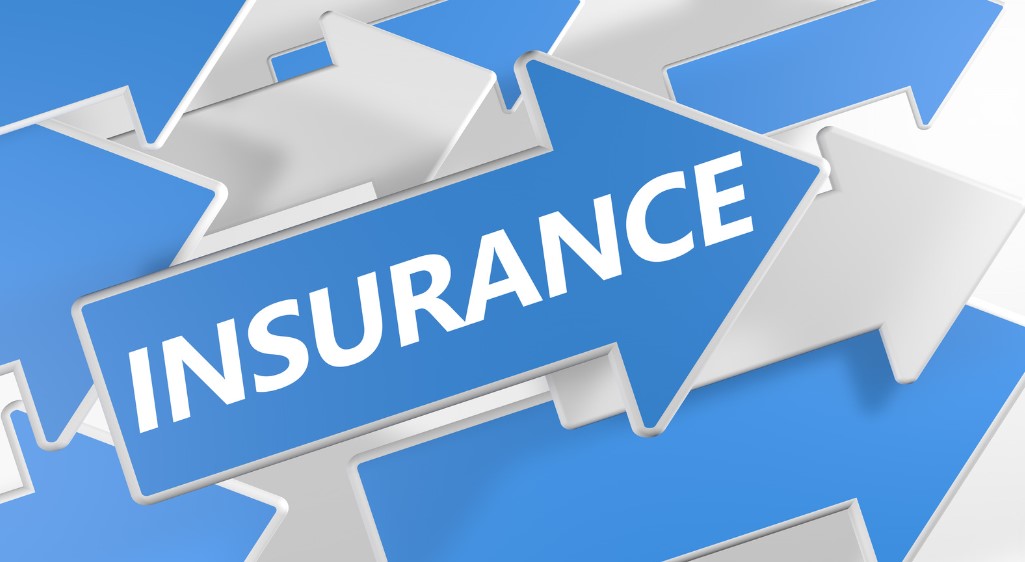Welcome to our blog! Today, we delve into the realm of Employment Practices Liability Insurance (EPLI), exploring its significance in safeguarding businesses against workplace-related lawsuits. Join us as we unravel its intricacies and understand why it’s a crucial asset for businesses of all sizes.
What is Employment Practices Liability Insurance?
Employment Practices Liability Insurance (EPLI) is a vital coverage that protects businesses against claims made by employees alleging violations of their legal rights. With the number of employee lawsuits on the rise, businesses need the security and peace of mind that EPLI coverage provides. EPLI insurance safeguards companies against a range of claims, including wrongful termination, discrimination, sexual harassment, breach of contract, and negligence.
As an employer, it is crucial to stay informed about the trends in EPLI claims, such as those arising from the impact of the COVID-19 pandemic, social movements like #MeToo, diversity and inclusion concerns, age discrimination, and even Brexit-related changes. By understanding the risks and taking proactive measures, companies can prevent EPLI claims and create a safe and inclusive workplace.
What does Employment Practice Liability Insurance cover?
Employment Practice Liability Insurance (EPLI) provides comprehensive coverage for employers against a range of employee lawsuits, ensuring businesses are protected from potential financial risks and reputational damage. EPLI coverage extends to various claims, including:
- Wrongful Termination: Protects against claims of unjust or illegal termination, safeguarding businesses from potential legal consequences.
- Discrimination: Coverage includes claims related to discriminatory practices based on factors such as age, gender, race, religion, or disability.
- Sexual Harassment: EPLI policies cover allegations of sexual harassment in the workplace, protecting businesses from potential liabilities.
- Breach of Contract: Provides coverage for claims arising from breaches of employment contracts, ensuring businesses can handle legal complexities.
- Negligence: EPLI coverage extends to claims of negligence, protecting businesses from potential financial losses resulting from lawsuits.
- Failure to hire or promote: Protects businesses against claims of unfair hiring or promotion practices, helping maintain equality in the workplace.
- Invasion of employee privacy: EPLI policies provide coverage for claims related to the invasion of employee privacy, ensuring businesses handle these issues effectively.
- Illegal background checks: Coverage includes claims arising from improper or illegal background checks, mitigating potential risks for businesses.
Aside from these specific cases, EPLI coverage also includes defense costs, settlements, judgments, and public relations expenses in instances where a company’s reputation is at stake. Understanding the full scope of coverage under an EPLI policy is crucial for businesses to ensure that they are adequately protected from potential legal and financial risks.

Trends in Employment Practices Liability Insurance claims
Understanding the trends in Employment Practices Liability Insurance (EPLI) claims is crucial for businesses seeking comprehensive coverage. Here are some significant trends to be aware of:
1. COVID-19-related EPLI claims
The COVID-19 pandemic has given rise to a variety of EPLI claims in the workplace. These include issues related to remote work capabilities, retaliation for unsafe working conditions, employee leave concerns, and discrimination resulting from workforce changes and lay-offs. It is essential for businesses to prioritize employee safety and ensure compliance with COVID-19 regulations to minimize the risk of such claims.
2. Increase in sexual harassment claims
The #MeToo movement has emboldened employees to come forward and speak up against sexual harassment in the workplace. As a result, there has been a noticeable increase in sexual harassment claims. It is crucial for businesses to foster a safe and inclusive work environment, implement robust anti-harassment policies, and provide comprehensive training to prevent such claims.
3. Focus on diversity and inclusion
Diversity and inclusion concerns have become prominent in recent years, leading to an increase in EPLI claims related to discrimination. Businesses need to prioritize diversity, equity, and inclusion initiatives, ensure fair hiring and promotion practices, and provide training to create an inclusive workplace culture.
4. Age discrimination issues
Age discrimination is another significant factor contributing to EPLI claims. As the workforce becomes more diverse in terms of age, businesses must proactively address age-related issues and ensure fair treatment and opportunities for employees of all age groups. Compliance with age discrimination laws is crucial in mitigating the risk of claims.
5. Impact of Brexit
Following Brexit, businesses should be aware of any changes in employment laws and regulations. Failure to comply with the new requirements can increase the likelihood of EPLI claims. Staying informed and seeking legal counsel to ensure compliance is vital in protecting against such risks.
Being aware of these trends can help businesses implement proactive measures, such as conducting regular policy reviews, providing comprehensive training, and fostering an inclusive work environment. By addressing potential issues and creating a culture of compliance, businesses can effectively protect themselves against EPLI claims.
How to prevent Employment Practices Liability Insurance claims
To effectively mitigate the risk of Employment Practices Liability Insurance (EPLI) claims, businesses should take a proactive approach and implement certain measures. By doing so, they can create a safe and inclusive work environment while reducing the likelihood of costly litigation.
Review and Update Policies
One of the first steps in preventing EPLI claims is to review and update company policies. It is crucial to include specific sections on discrimination, harassment, and retaliation, highlighting the company’s zero-tolerance stance on these issues. Clear guidelines and consequences for violations should be outlined to ensure that all employees understand their rights and responsibilities.
Keep Records of Evaluations and Complaints
Maintaining detailed records of employee evaluations and complaints is essential. These records serve as valuable evidence in the event of a claim and can help track and address potential issues before they escalate. By documenting all employee interactions, including performance reviews and disciplinary actions, companies can demonstrate fair and consistent treatment.
Stay Informed about Employment Law Changes
Employment laws are constantly evolving, and it’s important for businesses to stay up-to-date with these changes. By keeping abreast of the latest legal developments, companies can ensure their policies and practices align with current regulations and avoid potential legal pitfalls. Consulting with legal professionals or subscribing to industry newsletters can provide valuable insights into new legislation or court rulings that may impact employment practices.
Implement Training for Managers
Managers play a crucial role in maintaining a respectful and compliant work environment. Providing them with comprehensive training on topics such as diversity and inclusion, proper hiring procedures, and conflict resolution can help prevent EPLI claims. By equipping managers with the knowledge and skills to handle challenging situations effectively, companies can minimize the risk of discriminatory or wrongful actions.
Consider Additional Coverage
In addition to EPLI coverage, businesses may want to consider supplemental insurance options to fill any gaps in their standard commercial policies. One such option is Management Liability Portfolio (MLP) Insurance, which provides broader protection for a range of management-related risks. MLP Insurance can offer coverage for issues like defamation claims, breach of fiduciary duty, and other executive liability exposures that may not be covered by traditional EPLI policies.
By taking these proactive steps, businesses can significantly reduce the likelihood of EPLI claims and create a workplace culture built on fairness, respect, and compliance with employment laws.

Image: Conceptual image illustrating the prevention of Employment Practices Liability Insurance claims.
COVID-19 and the changing risk landscape

COVID-19 has had a profound impact on the risk landscape, particularly in relation to Employment Practices Liability Insurance (EPLI). The adoption of a new hybrid working structure, with employees splitting their time between the office and remote work, has introduced new challenges and potential exposure to COVID-19-related EPLI claims.
As employers navigate the return to the office, they must carefully manage flexible working requests and ensure fair treatment of both homeworkers and office workers to prevent the emergence of a two-tier workforce. This requires careful consideration of scheduling, communication, and resource allocation to maintain productivity and avoid claims related to discrimination or unfair treatment.
Additionally, employers must address the potential impact of long-COVID, a condition that may qualify as a disability under the Equality Act 2010. This raises the possibility of discrimination claims if adequate accommodations and support are not provided to employees experiencing long-term health effects from COVID-19.
Another area of concern for employers is the gender pay gap. Taking steps to close this gap is vital to avoid claims of equal pay and sex discrimination. Employers should analyze and address any disparities in pay, promotions, and opportunities for career advancement, ensuring fair treatment and equal opportunities for all employees.
The changing risk landscape necessitates that companies adapt and develop workforce resilience strategies. Employers must remain vigilant, staying informed about employment law changes, implementing appropriate policies and training programs, and fostering an inclusive and supportive work environment.
Conclusion
Employment Practices Liability Insurance (EPLI) is a critical coverage that safeguards businesses against claims made by employees for violations of their legal rights. Understanding the scope of EPLI policies and being aware of emerging trends in claims, such as those influenced by the COVID-19 pandemic, social movements, diversity and inclusion concerns, age discrimination, and Brexit-related changes, is vital for companies seeking comprehensive protection.
To prevent EPLI claims, businesses should take proactive measures, including regularly reviewing and updating policies, maintaining accurate records of employee evaluations and complaints, and staying informed about current employment laws. In the face of the hybrid working structure and employee health challenges brought about by the pandemic, like long-COVID, it is important for employers to adapt and prioritize the well-being of their workforce.
Closing the gender pay gap and providing support to employees going through menopause or experiencing miscarriages are integral aspects of creating a safe and inclusive workplace. By addressing these issues, businesses can not only protect themselves but also foster an environment that values the rights and well-being of their employees.
FAQ
What does Employment Practice Liability Insurance cover?
Employment Practice Liability Insurance (EPLI) covers employers against various employee lawsuits, including claims of wrongful termination, discrimination, sexual harassment, breach of contract, negligence, and more.
What are the trends in Employment Practices Liability Insurance claims?
The trends in Employment Practices Liability Insurance (EPLI) claims include those arising from the COVID-19 pandemic, social movements like diversity and inclusion concerns, age discrimination, and Brexit-related changes.
How can businesses prevent Employment Practices Liability Insurance claims?
To prevent Employment Practices Liability Insurance (EPLI) claims, companies should review their policies, keep a record of evaluations and complaints, ensure compliance with employment laws, and consider additional coverage options.
How has COVID-19 impacted Employment Practices Liability Insurance?
COVID-19 has brought significant changes to the risk landscape for Employment Practices Liability Insurance (EPLI), including issues related to the hybrid working structure, COVID-19-related claims, and employee health concerns.




